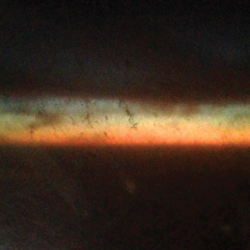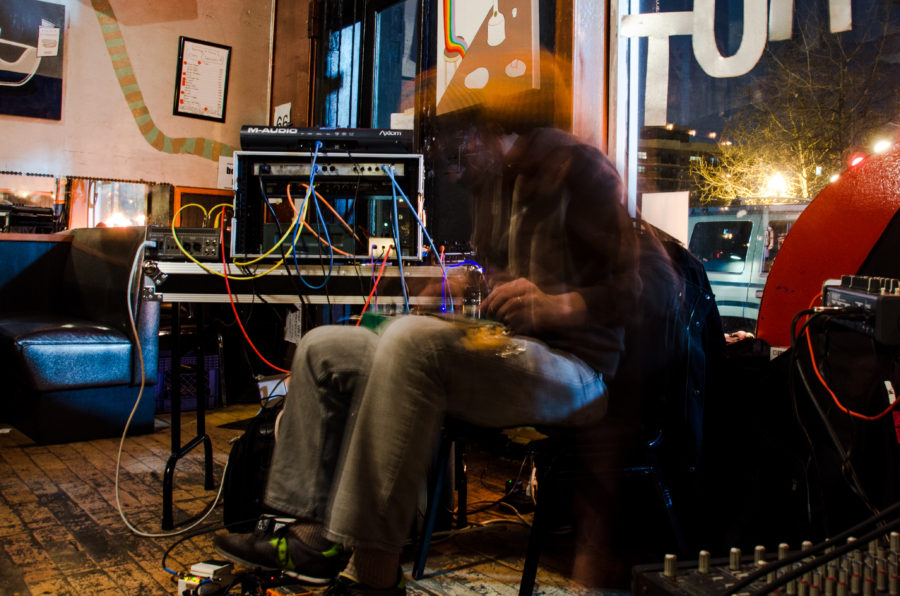One day it occurred to Jeff Barsky that the little red dot on your Facebook page — the one that indicates how much stuff has happened since you last logged on — is actually a powerful symbol of how our lives have changed over the last decade or so.

“I thought it was really interesting how that sort of work-oriented sphere of quantifiable data was something that we were voluntarily heaping upon ourselves,” says the Silver Spring, Maryland, guitarist who makes drone-and-tone compositions under the name Insect Factory.
All that thinking about likes and shares — and what they really amount to — led him to call Insect Factory’s latest album Work and sequence it like a work day. The opening track, “We’re All Just Here For The Money,” has a motif that could be an echoing clock or a heartbeat or the thrum of an assembly line. The closer, “Sleep Instruction,” is a 17-minute ocean of sound that never quite becomes restful. In between: “Slow Oxygen Loss,” “Junk Machine” and “Cigarette.”
The album’s long, meditative instrumentals are classic Insect Factory: Barsky’s approach is enticing and personal even though his sounds earn the sometimes-daunting label of “experimental music.” (Insect Factory performs Saturday at Rhizome DC at a show headlined by Thalia Zedek, known for playing in Come, Like Skull and Uzi. Chris Brokaw, who was in Come, contributed to Work.)
But there’s definitely something sinister at the edges of Work.
“A lot of the tones on the record, they start off very short and clipped and a lot more measurable. And slowly over the course of the record, the sort of static that creeps in by the second track — by the end it kind of takes over the entire [album],” Barsky says. “I was thinking about how that form of measurement that used to be restricted to a 9-to-5 day was something that became a part of our existence right now.”
Barsky, who also plays in the band Plums, works as an elementary school teacher. In his profession, data and technology matter more than ever. When making Insect Factory songs, however, he tries to innovate from within. He won’t be adding software or extra gadgets anytime soon.
“For me, what’s more interesting than buying more equipment to allow me to get bigger and louder is to sort of modify what I’m doing with actual guitar playing,” Barsky says. “So maybe tuning in a different way, or finding a piece of metal that has a weight that sounds really nice on the strings.”
After more than a decade of Insect Factory creations, he says there’s a natural flow to how he manipulates the duration of notes, the volume of notes, stereo channel separation and so on.
“I think it’s become part of my body, where I’m able to articulate what it is I want to say as an artist without having to think of all these knobs, and think about all the volume pedals — for me it’s just become second nature,” Barsky says. “If I have an idea, I know probably the quickest way to get that out.”
Insect Factory performs Saturday at Rhizome DC with Hothead, Nice Breeze and Thalia Zedek.


